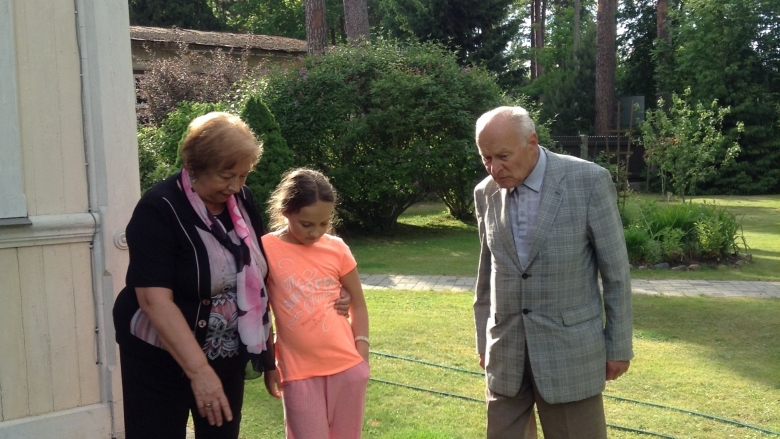It is mid-June in Latvia, and the lilacs in the Gavares’ garden in Jurmala are still blooming. They put out blankets for visitors to sit under as they sip coffee outside and a steady wind blows off the Baltic Sea.
Despite the late spring, the Gavares are happy with themselves and their lives, partly, they say, because both of them are working and engaged in life outside of their house.
Valdis Gavare is 81 and a nuclear physicist. “My job has helped me to live. Without my job I wouldn’t have survived, mentally or physically,” he says. “In 1990, my life changed and I retired, but I never stopped working.”
Varda Gavare, age 72, teaches business English at a university in Riga. She speaks impeccable English. “We value hard work, when you don’t have anything to do, you get depressed. I really love what I am doing, even if I don’t feel all that well all the time anymore—I had a hip operation a couple of years ago.”
Healthy, hardworking older people like the Gavares might be the key to Latvia’s future economic growth. Latvia is aging, in part because of a drop in fertility rates and in part because young Latvians are moving to other parts of the EU for better work. It’s not that Latvians are living longer; it is simply that the old increasingly outnumber the young.
And, an aging society isn’t unique to Latvia. In 1950, the average age of a person living in Central and Eastern Europe was 30. Today it is 40, and if fertility remains at current levels, seven eastern European countries will see a population drop of 10 or more percent by 2030.
